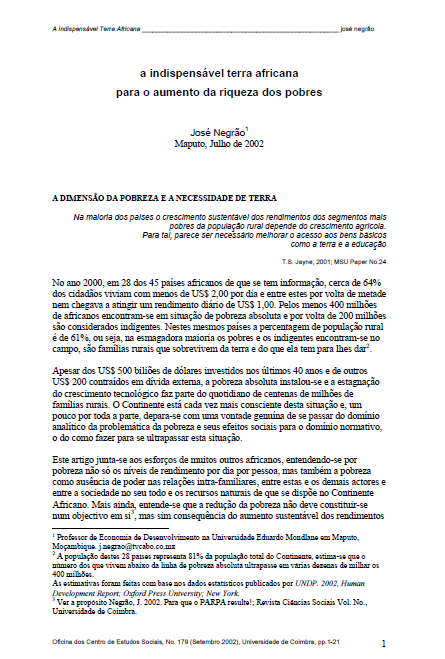The Impact of HIV/AIDS on Rural Households and Land Issues in Southern and Eastern Africa
Paper prepared for the FAO’s Southern and Eastern Africa Office. Covers the impact of HIV/AIDS on sub-Saharan Africa; the underlying causes of HIV/AIDS; its economic impact; its impact on the household livelihood strategies; and a conceptual framework. Looks at HIV/AIDS and poverty, regional migration, poverty-driven commercial sex work; the impact on the macro economy and the rural economy, on agricultural production and coping strategies, and women, children and the elderly and HIV/AIDS.






